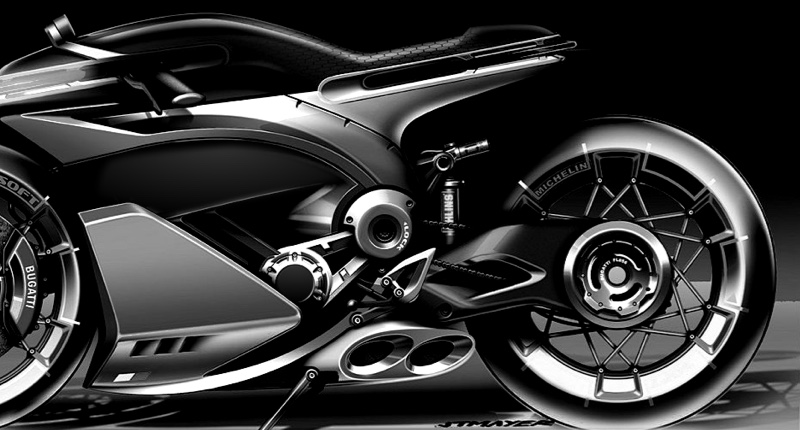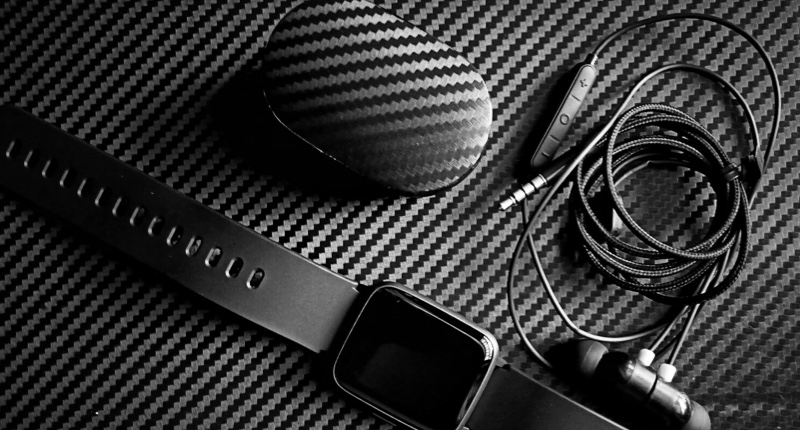is carbon fiber magnetic | Supreem Carbon Expert Guide
- Understanding Carbon Fiber's Magnetic Properties for Industrial Procurement
- Is Carbon Fiber Inherently Magnetic?
- Why is Carbon Fiber Not Magnetic? What are its Magnetic Properties?
- Does Carbon Fiber Interfere with Electronic Devices or MRI Machines?
- Can Carbon Fiber Parts Be Used in Environments with Strong Magnetic Fields?
- Are There Any Special Considerations for Carbon Fiber Procurement Regarding Magnetic Properties?
- Supreem Carbon: Your Partner for Precision Carbon Fiber Solutions
Understanding Carbon Fiber's Magnetic Properties for Industrial Procurement
In the high-performance materials industry, carbon fiber stands out for its exceptional strength-to-weight ratio, stiffness, and corrosion resistance. However, a common question arises, especially during procurement for sensitive applications: Is carbon fiber magnetic? Understanding its magnetic properties is crucial for industries ranging from medical devices and aerospace to precision manufacturing. This article addresses key questions surrounding carbon fiber's interaction with magnetic fields, providing essential knowledge for professionals in the carbon fiber parts industry.
Is Carbon Fiber Inherently Magnetic?
The straightforward answer is no, carbon fiber is not inherently magnetic in the way iron or nickel are. Unlike ferromagnetic materials that are strongly attracted to magnets and can retain their own magnetic fields, carbon fiber is primarily diamagnetic or very weakly paramagnetic. This means it exhibits a very slight repulsion from a magnetic field or a very weak attraction, effects that are negligible in most practical applications. Its non-ferromagnetic nature is a significant advantage in many high-tech fields.
Why is Carbon Fiber Not Magnetic? What are its Magnetic Properties?
Carbon fiber's non-magnetic nature stems from its atomic structure. Carbon atoms form strong covalent bonds within a highly ordered, graphitic crystalline structure. In most carbon-based materials, electrons are paired in these bonds, and there are no significant unpaired electrons or mobile electron spins that would create strong intrinsic magnetic moments. Ferromagnetism, for instance, requires domains of aligned magnetic moments, which are absent in carbon fiber. While graphite, a form of carbon, is known for its diamagnetism, carbon fiber shares similar electronic characteristics that prevent it from being a magnetic material.
Does Carbon Fiber Interfere with Electronic Devices or MRI Machines?
Due to its non-ferromagnetic properties, carbon fiber generally does not interfere with electronic devices in terms of magnetic fields. It's also highly compatible with Magnetic Resonance Imaging (MRI) machines. Unlike metals, which can cause significant image distortion (artifacts) and safety issues in the powerful magnetic fields of an MRI, carbon fiber parts remain unaffected and do not pose a risk. This makes carbon fiber an ideal material for medical equipment, patient tables, and even implants in certain contexts. While carbon fiber is electrically conductive, its electrical properties are separate from its magnetic ones and typically do not cause electromagnetic interference (EMI) unless specifically designed for shielding applications with conductive coatings or additives.
Can Carbon Fiber Parts Be Used in Environments with Strong Magnetic Fields?
Absolutely. In fact, carbon fiber's non-magnetic property is one of its primary advantages for applications in environments with strong magnetic fields. Industries like scientific research (e.g., particle accelerators, fusion reactors), medical diagnostics (MRI machines), and some aerospace components require materials that will not be affected by or cause interference with magnetic fields. The stability and integrity of carbon fiber components remain uncompromised, making it a superior choice over traditional metallic materials that would be problematic in such conditions.
Are There Any Special Considerations for Carbon Fiber Procurement Regarding Magnetic Properties?
While carbon fiber itself is non-magnetic, it's crucial for procurement specialists to consider the entire composite structure. The final magnetic properties of a carbon fiber part can be influenced by:
- Metallic Inserts or Fasteners: If a carbon fiber component includes metallic inserts, bolts, or other fasteners, these metals (especially ferrous ones like steel) can introduce magnetic properties to the assembly.
- Resin Matrix or Fillers: While rare, certain resins or additives used in the composite manufacturing process could potentially contain trace amounts of magnetic impurities or specific fillers designed for other purposes that might inadvertently impart slight magnetic characteristics. Always verify material specifications.
- Manufacturing Contamination: In very rare cases, contamination during manufacturing with metallic particles could occur, though reputable manufacturers have strict quality control to prevent this.
For applications where magnetic purity is critical, always request detailed material specifications from your supplier. Discuss the specific requirements with your manufacturer to ensure that the entire composite, including all components and processes, meets the non-magnetic criteria. Advanced testing for magnetic permeability can be performed if necessary.
Supreem Carbon: Your Partner for Precision Carbon Fiber Solutions
When sourcing carbon fiber parts, particularly for applications demanding strict magnetic neutrality, Supreem Carbon stands as a leader in delivering unparalleled quality and expertise. Our commitment to using high-purity carbon fibers, combined with meticulously controlled manufacturing processes, ensures that our components meet the most stringent specifications for non-magnetic environments. Supreem Carbon's advantages include:
- Material Purity: We utilize High Quality carbon fiber and resins, ensuring minimal to no magnetic impurities.
- Precision Manufacturing: Our advanced manufacturing techniques allow for the creation of components with exact specifications, including the avoidance of materials that could introduce magnetic interference.
- Customization and Expertise: We work closely with our clients to understand their specific application needs, offering tailored solutions and expert advice on material selection for non-magnetic or other specialized requirements.
- Rigorous Quality Control: Every Supreem Carbon product undergoes thorough quality checks, guaranteeing performance and adherence to industry standards.
By partnering with Supreem Carbon, you gain access to high-performance, reliably non-magnetic carbon fiber components crucial for sensitive industrial and scientific applications, ensuring peace of mind in your procurement decisions.

Fabricante de fibra de carbono para motocicletas de alta calidad de China

Application Advantages of Carbon Fiber in Automobile Chassis Brackets

Xiaomi SU7 Aerodynamic Carbon Fiber Body Kits Released by Supreem Carbon.

Supreem carbon Auto part new arrivals!

New arrivals of Honda CBR1000RR-R!

Ducati DesertX 2022 new arrivals!
For After-sales Service
What can I do if the carbon fiber products arrived is broken?
Please give us feedback as soon as possible and we will send new one to you.
For Carbon Fiber Material
What are the advantages of carbon fiber?
High Strength-to-Weight Ratio
It is stronger than many traditional materials, such as steel and aluminum.This high strength-to-weight ratio allows for the creation of lightweight components that maintain structural integrity and durability.
Lightweight
One of the most significant advantages of carbon fiber is its low density, contributing to lightweight structures. This property is particularly crucial in industries where weight reduction is a priority, such as aerospace, automotive, and sports equipment.
Resistant to corrosion and chemicals
Carbon fiber is inherently resistant to corrosion, making it an ideal material for applications exposed to harsh environments or corrosive substances. This property contributes to the longevity of components and reduces maintenance requirements. Carbon fiber has good chemical resistance, making it suitable for use in environments where exposure to chemicals or harsh solvents is a concern. This resistance enhances the material's durability in various industrial settings.
Tolerant of high temperature
Carbon fiber exhibits excellent thermal stability and resistance to high temperatures. This makes it suitable for applications where components are exposed to elevated temperatures, such as in the aerospace and automotive industries.
Low thermal expansion
Carbon fiber has a low coefficient of thermal expansion, meaning it expands or contracts minimally with changes in temperature. This property contributes to dimensional stability, making carbon fiber components reliable in varying temperature conditions.
Aesthetic Appeal
Carbon fiber has a modern and high-tech appearance, contributing to its aesthetic appeal. This property is leveraged in consumer goods, automotive components, and sporting equipment where visual appeal is important.
For Products
Are you parts have UV protected?
Absolutely! We use multiple layers of premium quality automotive clear (or matt) coats on our products, which ensure that they will remain super pretty for years to come.
How can I get some sample?
Actually we dont provide the free sample to customer, you can place a sample order if need some parts.
Which carbon fiber material you can provide in production?
1*1 plain /2*2 twill / forged carbon / honeycomb / kevlar and so on.

Honda CBR1000RR-R Carbon Fiber Belly Pan Lower Side Fairings

BMW S1000R Carbon Fiber Rear Seat Upper Fairing

Lamborghini Urus Carbon Fiber Engine Bay Panel
Enhance the visual appearance of your Urus engine bay with these custom carbon fiber engine covers. 100% handmade and a 1:1 copy of the original part, which retains all OEM screw mounting points. Elevate your driving experience with this exquisite addition, showcasing unparalleled craftsmanship and enhancing the allure of your Urus’s engine bay.

Kawasaki H2/H2R Carbon Fiber Side Fairing
Let’s Bring Your Carbon Fiber Ideas to Life
Have a question or inquiry about our carbon fiber composite products? Leave us a message here, and our team will get back to you promptly.
Whether you're interested in custom orders, technical specifications, or partnership opportunities, we're here to assist you.
Please fill out the fields above with your name, email address, and message.
© 2024 Supreem Carbon All Rights Reserved.





Facebook
Pinterest
LinkedIn
Instagram